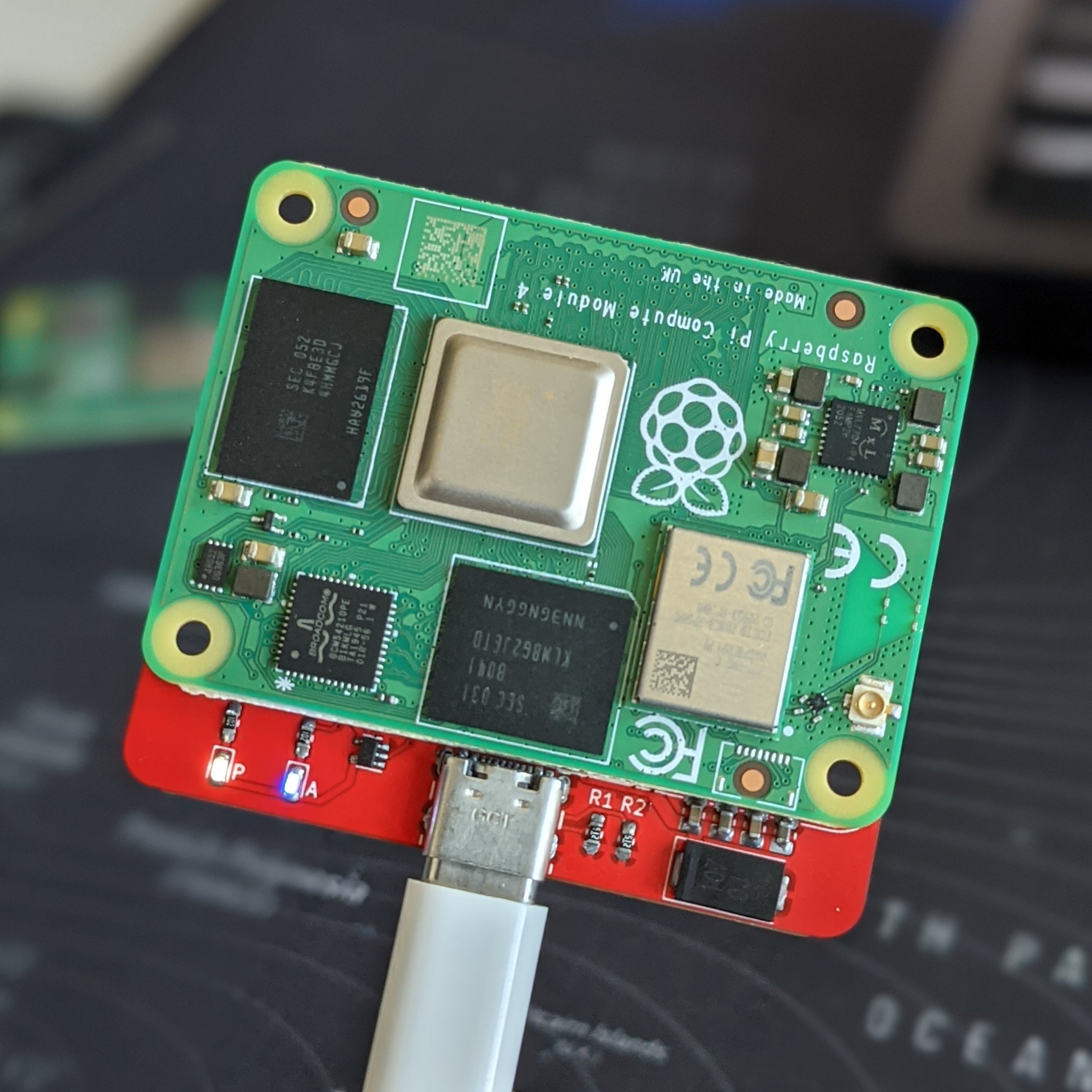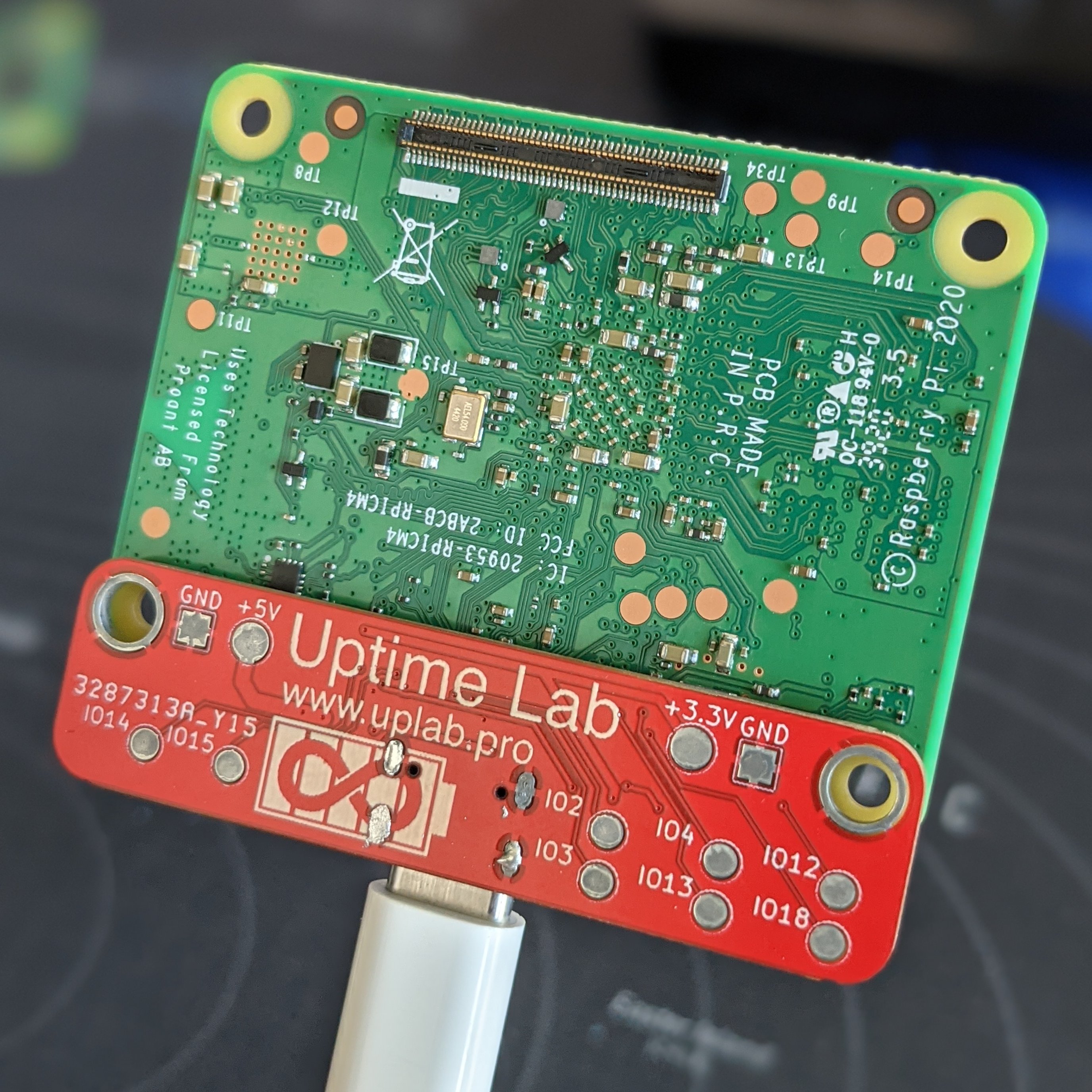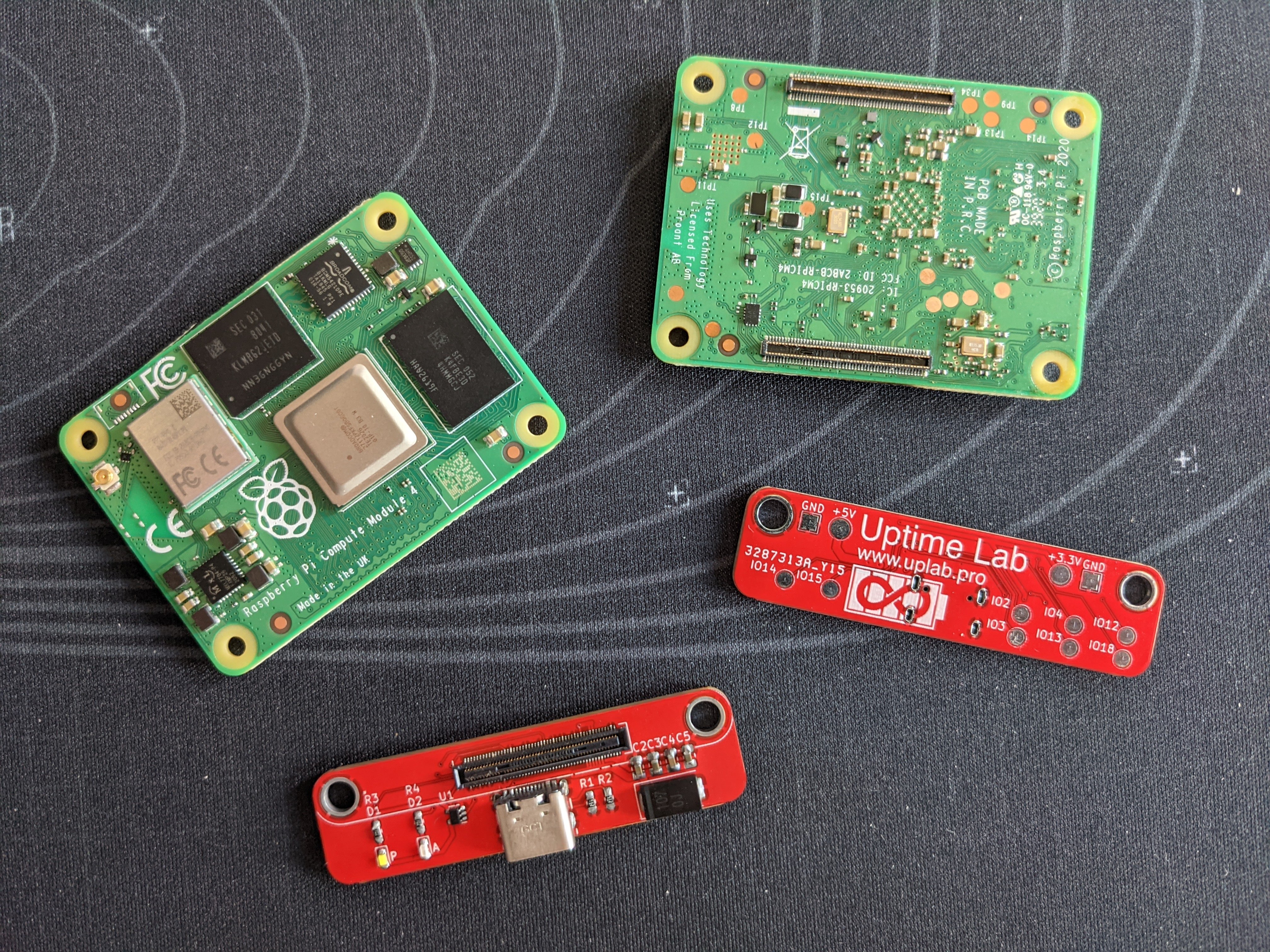The Smallest Raspberry Pi Compute Module 4 Carrier Board, Ever
MinCab is 'uber' cool

The Raspberry Pi Compute Module 4 (CM4) is often used in deeply embedded applications which require custom carrier boards. Powered by a quad-core ARM Cortex-A72 processor, the Compute Module 4 distils the power of the Raspberry Pi 4 into a much smaller package. The smallest Minimal Carrier Board for Raspberry Pi CM4 board, MinCab, has just been announced and it comes from Ivan Kuleshow at Uptime Labs, also responsible for the Compute Blade server.
The MinCab hardware is exactly that - a mini carrier board. It provides a minimal interface with the outer world, allowing you to make simple connections to your CM4 board. The board is using a USB-C connector to power the CM4 and it breaks out some of the GPIO connections. Specifically we have 5V, 3.3V, and GND signals available on the MinCab board pads. More specifically, the GPIO pins that are available are IO2, IO3, IO4, IO12, IO13, IO14, IO15, and IO18. These pins work at standard 3.3V logic, but can also be used for I2C, Serial (Tx / Rx) and Pulse Width Modulation (PWM).



The MinCab PCB achieves all of that while using only one breakout, out of two available. The other breakout is available for use, but as Kuleshov mentions via a Twitter conversation, an additional board using the spare connector will need a "bridge" between the two connectors. The board has two M3 screw points that can be used to mechanically connect the board to the CM4. Right now the MinCab represents a unique way to use the connection in an efficient manner that is packed in a tiny form factor.
Ideally, the MinCab board is going to be used in applications like smart home systems, where a Bluetooth and a Wi-Fi connections are mandatory. If our CM4 powered project needs a little processing power, the Broadcom BCM2711 processor is there to run any Linux application.
If you are wondering about the availability of the MinCab board, its maker, Uptime Lab, has not launched it yet on the website officially. For now, it seems like the project is only going to remain a prototype, at least until the Uptime Lab owners decide to do a mass production set for the wider audience.
Get Tom's Hardware's best news and in-depth reviews, straight to your inbox.